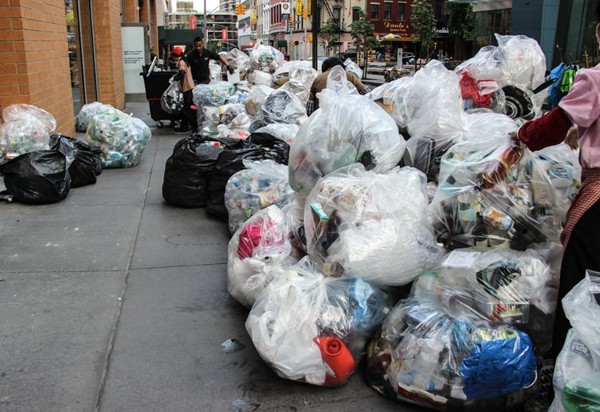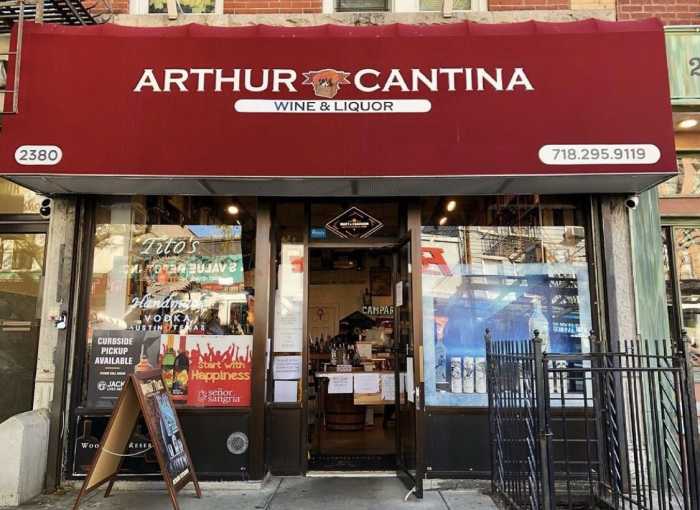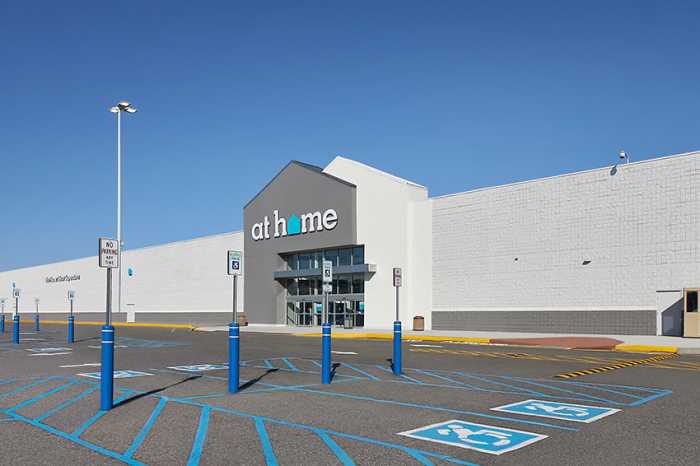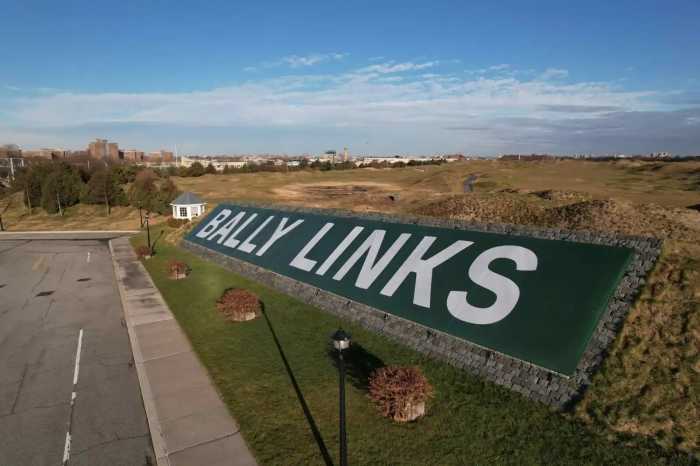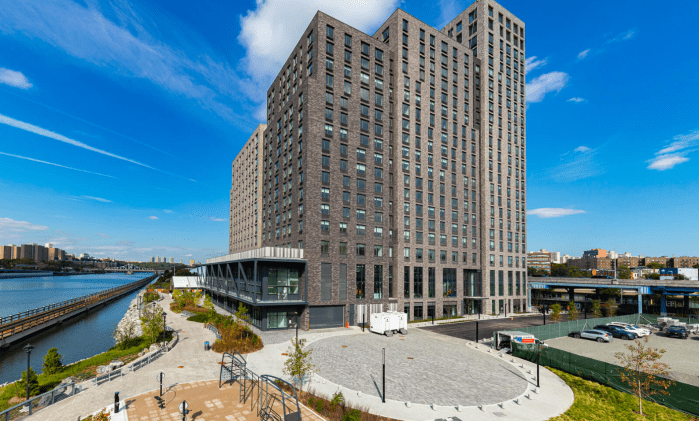The business improvement groups responsible for maintaining Bronx commercial corridors warned the Department of Sanitation (DSNY) on Monday that a proposed rule requiring them to purchase $50 trash bins to keep garbage bags off the streets could place a significant strain on their already limited budgets.
At a public hearing on the proposed rule set to take effect in August, Bronx Business Improvement District (BID) leaders expressed concerns that they already shoulder the cost of supplementing the city’s sanitation services for the borough’s commercial districts. They warned that purchasing enough bins to remove all garbage bags from commercial streets would divert crucial funds from core BID initiatives, such as marketing small businesses and organizing community events.
BID leaders say that their main role is to support and promote local businesses in their respective district through advocacy, beautification and marketing—not sanitation. They generate most of their revenue through levies placed on commercial landlords and say the funds should be spent on marketing and promotion.
The DSNY is likely to fine BIDs that don’t comply with the new measure, something Peter Madonia, chairman of the Belmont BID, which includes the Bronx’s Little Italy, called “outrageous and offensive.”
Madonia said at the hearing that his BID estimated outfitting its commercial corridor with enough trash containers would cost over $40,000, not including the costs of regular maintenance, repairs, and insurance. The initial cost represents more than 10% of the BID’s annual budget.
He said that spending so much in cleaning up the streets would significantly reduce the other services the BID provides to the community.
“DSNY’s core mission is to pick up garbage and clean streets,” Madonia said. “That is not the core mission of the BIDs across this city – we do it as a supplemental service. DSNY trying to turn their job into ours in the way they are doing it is simply unreasonable.”
Madonia also worried about space. Under the new rule, private trash bins could not be placed near public litter baskets. He brought up the limited sites that would be feasible to store trash containers in a neighborhood like Little Italy, where parking and outdoor dining space is already highly coveted.
The proposed rule adds to DSNY’s “Trash Revolution” which aims to make city streets cleaner and free of rats by keeping both residential and commercial garbage bags off the street and into containers. The revolution, combined with other rat mitigation efforts such as revamping the city’s outdoor dining program, seem to be working.
In April 2024, one year into the revolution, the city reported a sustained decrease in rat sightings 11 out of the 12 months since the war on garbage began, according to 311 data.
Vincent Gragnani, a spokesperson for DSNY said the agency offered BIDs “a number of alternatives” to bags including different kinds of bins or street containers, storage facilities or dropping trash off at sanitation garages.
But while Bronx BIDs said they support the city’s efforts to keep the streets clean and free of rodents, the organizations said they simply don’t have the funding to implement the requirements without help.
The Deputy Director of Fordham Road BID, Albert Dalipi, testified at Monday’s hearing that the organization already spends over a third of its budget on supplemental sanitation services and the new rule would increase that cost.
Fordham Road has over 300 businesses and 80 commercial buildings, leaving its BID to manage 12,000 bags of trash every quarter. Even without the new rule, Dalipi said the price of cleaning up Fordham road is going up.
“Rising operational costs due to new insurance requirements, inflation, minimum wage increases, and other expenses further strain the BID sanitation budget,” Dalipi said. “In the interest of fiscal responsibility, Fordham BID would require significant additional resources and funding to comply.”
Camelia Tepelus, Executive Director of the Morris Park BID, said that while merchants and residents alike want clean streets, free of rodents and trash, the new rule sets unrealistic expectations for BIDs and associations that already go above and beyond.
“This is a mandate that we all agree with in principle,” Tepelus said during the hearing. “Nobody wants to see plastic bags at the ends of our streets; however this is also a [costly] mandate that says, ‘make the trash disappear by magic.’”

